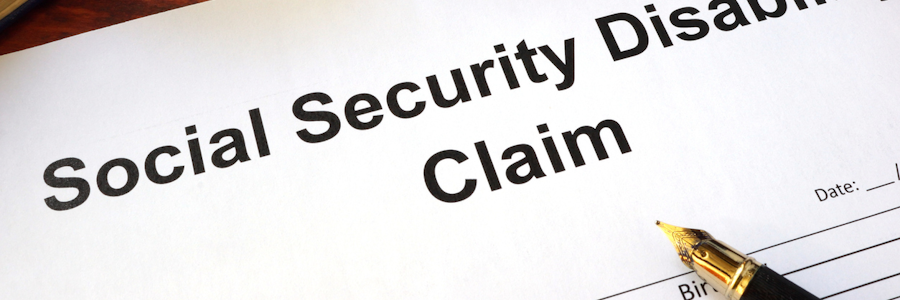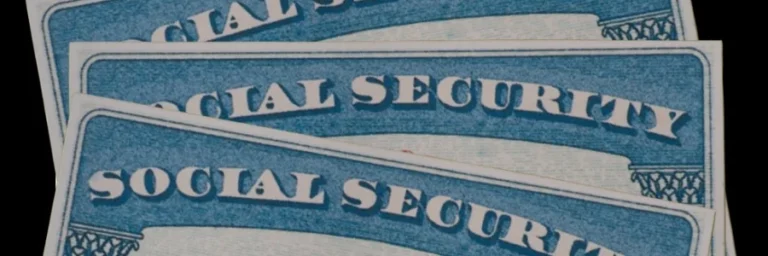
Social Security disability benefits serve as a crucial financial lifeline for millions of Americans who are unable to work due to severe impairment. However, the system isn’t perfect, and mistakes can happen. For instance, overpayments can occur for various reasons, such as changes in income, errors in reporting, or miscalculations by the Social Security Administration (SSA) itself.
Understanding Social Security disability overpayment regulations is essential for anyone relying on these benefits. This article unpacks the complexities of Social Security overpayments, shedding light on how to handle such situations and what steps to take if you receive an overpayment letter
Understanding Social Security Overpayments
An overpayment occurs when the SSA pays you more disability benefits than you were eligible to receive. This means that you were given money you weren’t actually entitled to under the program rules, and the SSA will ask for that money to be repaid.
Overpayments usually happen because the SSA was not aware of a change in your situation when they issued your benefit payments. These changes can affect whether you qualify for benefits or how much you should receive. If the SSA doesn’t know about them right away, they may continue to pay you the full amount, even though it’s more than you’re entitled to.
The SSA discovers overpayments through several methods, including periodic checks, such as Continuing Disability Reviews (CDRs) or redeterminations, as well as cross-checks with other government agencies, such as the IRS, reports from you or others, and updates to your medical, financial, or legal situation. Once the SSA determines that too much in disability benefits has been paid, they calculate the overpaid amount and send you a disability overpayment notice explaining how much you owe, why the overpayment occurred, and what options you have to respond.
Common causes of overpayments
The most common causes of Social Security disability overpayments usually fall under three main categories: medical causes, financial causes, and legal or personal status changes.
1. Medical causes
- You are no longer considered disabled: The SSA regularly conducts Continuing Disability Reviews to determine if your medical condition still qualifies as a disability. If the SSA finds that your condition has improved and you no longer meet the medical criteria, your benefits may stop. You have a right to elect to continue benefits after a cessation decision, but if you are ultimately unsuccessful in your CDR case, it results in an overpayment. Check out our article on the CDR process here.
- You failed to report medical improvement: If your condition improves and you return to work or regain function but don’t report this to the SSA, they may later find out and determine you were not eligible for the payments you received.
2. Financial causes
- You have exceeded the income limits: For Supplemental Security Income (SSI) recipients, there are strict income limits. If you earn more than allowed from wages or self-employment, unreported gifts or cash support, or other benefits or pensions, you may receive benefits you no longer qualify for.
- You have exceeded the asset/resource limits: SSI also has limits on the total value of your assets (e.g., savings, property other than your primary home, stocks). The asset limit is $2,000 for an individual and $3,000 for a couple. If your resources go over that amount, even temporarily in a single month, you may be overpaid. If your resources go over the allowable limit for many months, you will be sent an overpayment notice for any month in which your resources were deemed too high.
- You are receiving other public disability benefits: If you receive other public benefits, such as workers’ compensation benefits or state disability benefits, these benefits can reduce your Social Security disability benefits. Your combined monthly income from Social Security Disability Insurance (SSDI) and other public disability benefits cannot exceed 80% of your average current earnings before you became disabled. If SSA continues to pay the full SSDI benefit without accounting for your other benefits, it can result in an overpayment. Check out this article regarding the “80 percent rule” and public benefits offsets.
3. Legal or personal status changes
- You are incarcerated: If you are incarcerated for more than 30 continuous days, you are generally ineligible for SSDI or SSI during that time. If the SSA isn’t notified and continues paying, this results in an overpayment.
- There is a change in your immigration status: If your legal status in the US changes and you no longer meet the eligibility requirements (such as lawful presence), the SSA may stop benefits. Continued payments after a loss of eligibility lead to overpayment.
- You are living outside the United States: Some beneficiaries may become ineligible if they leave the country for an extended period. To learn more, read our blog article on living abroad while on Social Security disability. Failing to report travel or relocation abroad can cause overpayments.
- Change in marital or household status: For SSI recipients or Disabled Adult Child (DAC) benefits recipients, if you marry or divorce, your benefit amount can be affected. Unreported changes can result in overpayment. Check out this article regarding the impact of marriage on DAC benefits.
SSI vs. SSDI overpayments
SSI and SSDI are two different disability programs run by the Social Security Administration , and the rules around overpayments differ significantly due to the nature of each program.
For SSI, overpayments often happen when a recipient earns more than the allowed income limit or owns resources that exceed the program’s strict asset threshold. Changes in living arrangements, such as moving in with someone who provides financial support, can also affect benefit amounts if not reported. Other common causes include receiving additional benefits or financial support without reporting it, failing to report changes in a timely manner, being incarcerated for more than 30 days, or leaving the US for an extended period, which can all make someone ineligible for benefits.
For SSDI, overpayments typically result from working and earning more than the Substantial Gainful Activity (SGA) level after the trial work period ends. Another major cause is receiving other public disability benefits, such as workers’ compensation or state disability, that push total monthly disability income over the 80% limit of pre-disability earnings. Overpayments may also occur if a Continuing Disability Review finds that the person is no longer medically disabled, or if there is a failure to report significant changes in work activity, benefits received, or medical condition. Incarceration lasting more than 30 days can also make someone ineligible, leading to overpayment if not promptly reported.
Receiving an Overpayment Letter: What to Do First
If you receive a Notice of Overpayment from the SSA, the first step is to carefully review the notice to understand the details. Make sure the notice clearly explains why you were overpaid and confirms the amount you owe. Sometimes, these notices include detailed explanations or tables showing how the SSA calculated the overpayment, but other times, they can be vague or confusing.
If you agree that the overpayment occurred, you have several repayment options. If you are still receiving Social Security benefits, the SSA can withhold either the full amount or a portion of your monthly benefits until the overpayment is fully repaid. You can also discuss setting up a repayment plan if paying back the full amount at once isn’t possible.
If you disagree with the overpayment or believe the amount is incorrect, you have the right to file an appeal. This appeal allows you to request a review of the SSA’s decision and provide evidence supporting your case. It’s important to act quickly because there are deadlines for filing an appeal.
Your Options After Receiving an Overpayment Notice
When you receive an overpayment notice from the SSA, you have three main options for handling the situation:
1. Appealing the overpayment
If you believe the overpayment is incorrect, either because you weren’t actually overpaid or the amount is wrong, you can appeal the decision. This means formally disputing the debt with the SSA. You’ll need to explain why you disagree and provide any evidence supporting your case. Filing an appeal can delay repayment while your case is reviewed. Use Form SSA-561 to appeal and request a reconsideration if you think the SSA overpayment letter is wrong.
2. Requesting a waiver
If you agree that you were overpaid but believe you should not or cannot afford to repay the money, you can request a waiver. A waiver asks the SSA to forgive the overpayment because repaying it would cause you financial hardship or because the overpayment was not your fault. To qualify, you need to show that repayment would be unfair or that you did everything you were supposed to do to avoid the overpayment. Use Form SSA-632 to request a waiver of the overpayment.
Choosing the right option depends on your circumstances, and you can combine options. For example, you can appeal while requesting a waiver.
3. Negotiating a repayment plan
If you agree that you were overpaid but cannot pay the entire overpayment amount all at once, you can work with the SSA to set up a repayment plan. This allows you to pay back the money over time in smaller, manageable amounts. In some cases, you might also be able to negotiate a compromise or reduced amount, depending on your financial situation.
How to Appeal an Overpayment
You can appeal an overpayment if you believe the SSA made an error or miscalculated the amount you owe. A common reason for appeal is when the SSA determines you are no longer disabled, but you believe you still meet the disability criteria. In that case, you’ll need to prove that you are still disabled and eligible for benefits.
Filing the appeal
To file an appeal, start by submitting a request for reconsideration or the specific appeal form indicated in your overpayment notice. You must file your appeal within 60 days from the date you received the notice. Make sure to follow all instructions carefully, meet deadlines, and keep copies of everything you submit. You can file online, by mail, or in person at your local SSA office.
If your request for reconsideration is denied because SSA believes you are no longer disabled, you have the option to file a second-level appeal by requesting a hearing before a disability hearing officer (sometimes called a disability determination officer). This hearing provides another chance to present your case and evidence.
If the disability hearing officer also denies your appeal, you can take it to the next level by filing a request for a hearing before an administrative law judge (ALJ). During this hearing, the ALJ will review your case in detail, hear testimony from you and any witnesses, and examine all evidence before making a final decision.
What evidence to include
When appealing, provide all relevant evidence that supports your case. This may include:
- Recent medical records showing your condition and treatment
- Detailed work history if applicable
- Proof of your income or financial situation
- Any documentation that disproves the overpayment or justifies why you should not have to repay it
Including strong, thorough evidence improves your chances of a successful appeal.
Important deadlines
When you receive an overpayment notice from the SSA, it’s important to be aware of the deadlines involved, especially if you want to appeal or request a waiver. You have 60 days from the date you receive the overpayment notice to file an appeal if you disagree with the SSA’s decision or the amount they say you owe. Missing this deadline can make it much harder to challenge the overpayment.
You can also request a waiver of overpayment recovery, which asks the SSA to forgive the overpayment because repaying it would cause financial hardship or because the overpayment was not your fault. Unlike the request for reconsideration, there is no strict deadline to file this waiver. You can submit a waiver request at any time after receiving the notice, but it’s best to act promptly to avoid collection actions and to start the review process as soon as possible.
How to Request a Waiver of Overpayment
A waiver of an overpayment is a request you can make to the SSA asking them to forgive the overpayment, meaning you don’t have to pay back the money, if you meet certain conditions. To qualify for a waiver, you must show the SSA two key things:
- The overpayment was not your fault; and
- You can’t afford to repay the money without causing financial hardship.
What does “not your fault” mean?
The SSA will look at whether you did everything you were supposed to do to avoid the overpayment. You want to prove that you acted responsibly, but the SSA made a mistake or failed to provide proper guidance. Some of the reasons why the overpayment might not be your fault include:
- You tried to report changes in your income, disability, or living situation, but the SSA failed to act on the information.
- A Social Security employee told you that your work income does not disqualify you from receiving Social Security disability benefits, and you relied on that advice.
- You cooperated fully with the SSA during appeals and believed you were still eligible for benefits, but the SSA later determined otherwise.
- You had an emergency or a hospitalization that prevented timely reporting of changes.
It’s important to give as much detail as possible when explaining your situation and provide any proof you have, such as dates you reported changes or documents you submitted. Showing that you made an honest mistake without trying to deceive SSA also helps support your case.
Financial hardship
The SSA will also consider your current income and resources to decide if repaying the overpayment would cause financial hardship. If paying back the money would leave you without enough funds for basic living expenses (such as food, rent, utilities, and medical care), the SSA may grant the waiver.
When applying for a waiver, you will need to list all your income sources, including certain public assistance, such as GA or VA benefits. However, some benefits don’t count as income, such as food stamps, Medi-Cal, unemployment benefits, and workers’ compensation.
Filing the waiver
To file a waiver for an SSA overpayment, you need to complete the Request for Waiver of Overpayment Recovery (Form SSA-632)
Once you’ve filled out the form with all the necessary information about your situation and financial hardship, you can submit it by faxing or mailing it to your local Social Security office.
Be sure to keep a copy of the completed form and any supporting documents you send for your records. Filing this form starts the waiver review process, where the SSA will evaluate whether you qualify to have the overpayment forgiven.
Combining appeal and waiver
You can file both an appeal and a waiver at the same time when you receive an SSA overpayment notice. By submitting both, you protect your rights, and you make sure the overpayment is reviewed thoroughly while also seeking relief if repayment would be a burden. It’s important to submit both as soon as possible to avoid missing deadlines and to ensure the SSA considers all your options.
Consequences of Ignoring an Overpayment
Disregarding an SSDI overpayment notice doesn’t make the problem go away — in fact, it can lead to some serious outcomes.
Automatic benefit withholding
In April 2025, the SSA announced that it would increase the default amount it takes back from beneficiaries to recover overpayments from 10% to 50% of their monthly benefit. This means that if you owe money to the SSA because you were overpaid, the SSA can now withhold 50% of your monthly benefit until the overpayment is fully repaid. For people who were already overpaid before that date, the withholding rate stays the same, and no action is needed.
For those receiving SSI benefits, the withholding rate will continue to be 10%, and this change does not affect SSI overpayments.
However, if you cannot afford to repay the amount at this rate, you can contact the SSA by calling 1-800-772-1213 or visiting your local SSA office to request a lower repayment rate.
Tax refund offsets (Treasury Offset Program)
Tax refund offset a re part of the Treasury Offset Program, which the government uses to recover certain debts, including Social Security overpayments.
Here’s how it works: If you owe money to the Social Security Administration because of an overpayment, and you haven’t repaid it, the Treasury Offset Program can take (or “offset”) your federal tax refund to recover that debt. This means that when you file your federal tax return and are due a refund, the IRS will send that refund directly to the SSA instead of to you, applying it toward your overpayment balance.
If the SSA says you’ve been overpaid, don’t panic — there are legal remedies available. LaPorte Law Firm can help you challenge the overpayment or set up manageable repayment terms, depending on your situation. Understanding your rights is key to avoiding unnecessary hardship. Contact us today to speak with an experienced disability attorney.
FAQs
If you receive a Social Security overpayment letter, the first step is to carefully read and understand the notice, including why the Social Security Administration says you were overpaid, the amount owed, and your options. Verify that the details are correct, as mistakes can happen.
If you agree with the overpayment, you should decide how to repay the amount, either through benefit withholding or by arranging a repayment plan with the SSA. If you disagree with the overpayment or the amount, you have the right to file an appeal within 60 days of receiving the notice. Additionally, you can request a waiver if you believe the overpayment was not your fault and you cannot afford to repay it.
It’s important to contact the SSA promptly, either by calling 1-800-772-1213 or visiting your local office, to discuss your situation and explore your options. Throughout this process, be sure to keep copies of all correspondence and records of any communications with the SSA to protect your rights.
To appeal a Social Security overpayment, you need to submit a formal appeal, usually called a request for reconsideration, within 60 days of receiving the overpayment notice. This appeal challenges the SSA’s decision that you were overpaid or disputes the amount they say you owe.
You can file your appeal online, by mail, or in person at your local Social Security office. When filing, be sure to follow all instructions carefully and keep copies of everything you submit. It’s important to include any evidence that supports your case, such as medical records, proof of income, or work history, to show why the overpayment was incorrect.
If your appeal is denied, you can request a hearing with a disability hearing officer, and if that is also denied, you can continue to higher levels of appeal, including an administrative law judge hearing. Throughout the process, you have the right to be represented by an attorney or another representative and to present evidence and testimony supporting your case.
You can request a waiver of a Social Security overpayment if you believe the overpayment was not your fault and if repaying the amount would cause you financial hardship. To qualify for a waiver, you must show that you did everything you were supposed to do, but the overpayment occurred due to circumstances beyond your control, such as misunderstandings, miscommunication, or factors related to your disability. Additionally, you need to demonstrate that repaying the overpaid amount would leave you unable to meet your basic living expenses.
You can request a waiver at any time after receiving an overpayment notice, even if you have already started repaying the debt. If the SSA grants the waiver, you will not have to repay the overpayment. If your waiver request is denied, you can appeal the decision.
If you ignore an overpayment notice from the SSA, the agency will continue to pursue repayment of the debt, which can lead to more serious consequences. The SSA may withhold money directly from your monthly benefits to recover the overpaid amount, often without further notice. Additionally, they can refer your debt to the Treasury Offset Program, which allows them to intercept your federal and state tax refunds or other federal payments to collect the money owed.
Ignoring the notice can also limit your options to appeal, request a waiver, or negotiate a repayment plan, making it harder to resolve the issue in your favor. It’s important to respond promptly to avoid these actions and protect your rights.
















